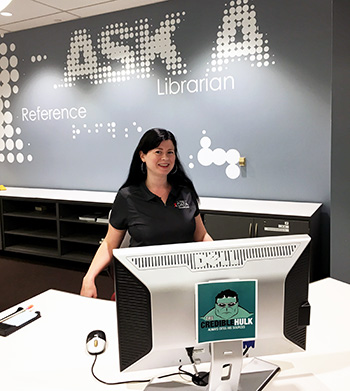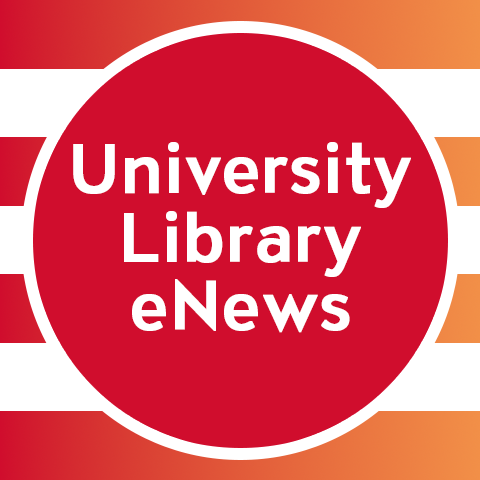Newsletter Edition: Fall 2019

Contributed by Kathy Dabbour and Gina Flores
In a revealing study titled, “Impact of Library Use on First Year Retention and Success,” assessment librarian Laura Wimberley examined two research questions as part of the CSUN Data Champions* initiative:
- Are first-year students who use library collections and services more likely to return for their second year?
- Do first-year students who use more library collections and services earn more credits than comparable students who don’t use the library?
Analysis of the records of all 5,214 first-time freshmen who entered CSUN in Fall 2017 showed highly statistically significant relationships between these variables – in short, yes!
“Retention of students in their sophomore year is the most powerful means to meet our goal of timely graduation,” said Wimberley. “The more books and media a first year student checks out of the Oviatt Library, the more likely they are to return for their sophomore year.”
As for course credits, three measures of library use -- technology services, general books and media, and course reserves -- are highly significant, positive predictors of credits earned by first-year students. “A student who uses an item on course reserve just twice in their first year is predicted to earn one more unit of credit than a comparable student who doesn’t take advantage of course reserves. Three laptop checkouts predicts another unit of credit earned over a comparable student who doesn’t use library tech services,” Wimberley reported. Despite the digital revolution, print books are still relevant and influential. Another student survey conducted in November 2018 indicated that CSUN students across all colleges prefer at least some of their reading material in print, and the impact of print circulation on student success confirmed these preferences are consequential.
Through the Library’s Course Reserves service, faculty can put library-owned or personal copies of course reading materials on reserve for their students who otherwise wouldn’t be able to easily locate or afford these resources. Faculty can also link to the library’s extensive collections of electronic journal articles, books, and streaming media from their online course management site to provide access to course readings. For several years, the Library has received funding from the Campus Quality Fee (CQF) to purchase single copies of expensive print textbooks and put them on course reserve for classes with high enrollment. In addition, the library has received CQF funding to purchase laptops, tablets, media equipment, and mobile hotspots to loan out to students who otherwise do not have access to this equipment in support of course assignments. However, with a large student population like CSUN’s, demand for print reserves and technology often outpaces supply, leading to waitlists. Therefore, this study indicates the need for increased funding for these critical resources, as an investment in the Oviatt Library is an investment in student success.
*Through collaboration with key faculty, the CSUN Data Champions Program facilitates data-informed decision-making about how the university can improve graduation rates and eliminate opportunity gaps. Designated Data Champions are empowered to identify potential predictors of and barriers to student success, to collaborate with colleagues to develop data-informed programs and initiatives in support of student success, and to train their colleagues to use the data tools.
